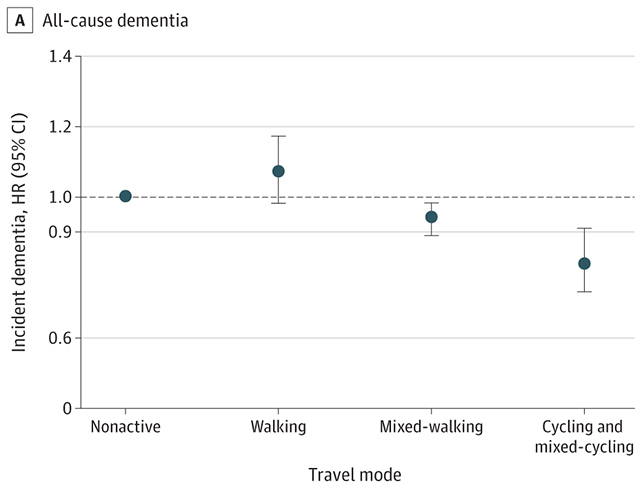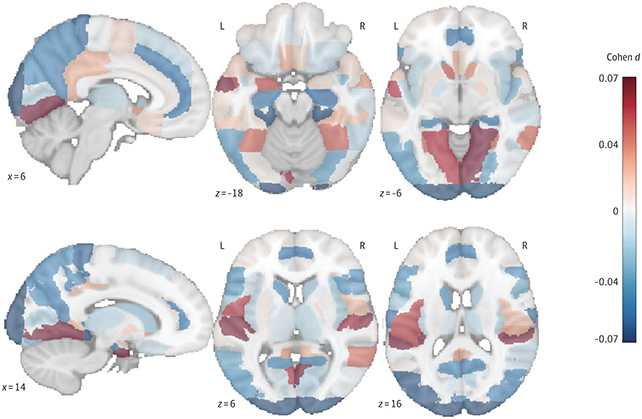Getting from A to B on a bicycle more often could reduce risk of dementia, possibly by protecting a part of the brain tied to memory functions, new research finds.
A study carried out by researchers from the Huazhong University of Science and Technology in China and the University of Sydney backs up the idea that frequent amounts of moderate exercise and keeping the brain busy can guard against neurodegeneration.
"The findings of this cohort study suggest an association between active travel mode and incident dementia and brain structure," write the researchers in their published paper.
Following UK public health records of nearly half-a-million people aged on average around 56, the researchers looked for a relationship between common forms of transport most and whether individuals developed any form of dementia.
The modes of transport were split into four groups: non-active (cars and public transport), walking, walking and non-active combined, and finally a group of people who primarily cycled to get around, or used cycling alongside other options. Commutes to and from work were excluded from the analysis.
Compared with non-active travelers, the cyclists had a 19 percent lower risk of all-cause dementia, a 22 percent lower risk of Alzheimer's, a 40 percent lower risk of young-onset dementia (before the age of 65), and a 17 percent lower risk of late-onset dementia.

"Our findings suggest that promoting active travel strategies, particularly cycling, may be associated with lower dementia risk among middle-aged and older adults, which carries substantial public health benefits by encouraging accessible, sustainable practices for cognitive health preservation," write the researchers.
Dementia is a complex condition, and a whole host of factors are thought to be involved. Previous studies have found a link between spatial navigational abilities and brain volume, for example, which fits in with what the researchers found here: that cyclists ended up with higher hippocampal volumes.

It could be the level of physical activity cycling demands that is largely responsible lowering the dementia risk, or having to negotiate routes and directions, or the need to stay alert, or perhaps being more exposed to fresh air. These are all mentioned by the researchers, as is genetic risk – cycling was less beneficial for those with the APOE4 gene variant linked to Alzheimer's.
Potentially influential variables like age and education were factored in, but the study doesn't show direct cause and effect – there are plenty of variables that weren't monitored. What it does show is a strong link, which makes sense in the context of other research (associating exercise with dementia risk, for example).
What we do know is dementia is a growing issue worldwide, as populations get older. Methods for reducing dementia risk are desperately needed, and cycling could be an easy, affordable option for a lot of people.
"Dementia has emerged as a leading contributor to dependence and disability among older adults, with the global number of cases projected to rise from 55 million in 2019 to 139 million by 2050," write the researchers.
The research has been published in JAMA Network Open.
